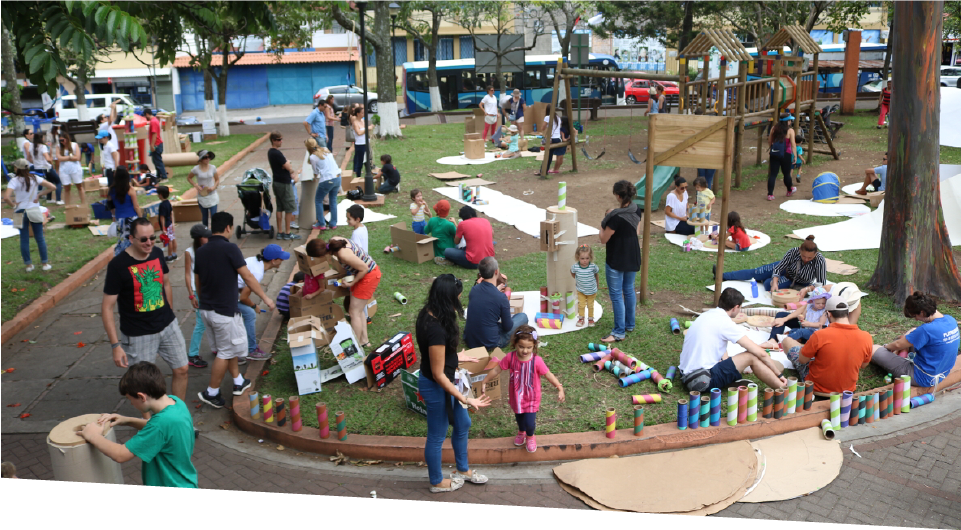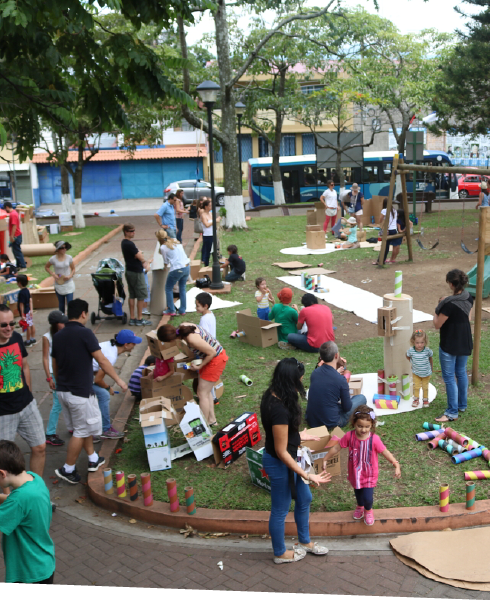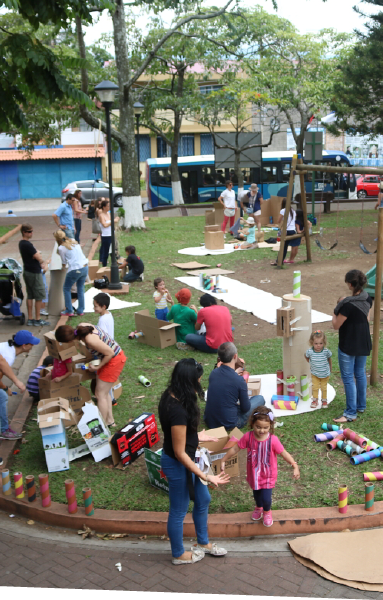Why invest in playwork training when play seems so intuitive for children?
Play may appear instinctive to children, but effectively supporting it requires a deep understanding of the play process. High-quality playwork training helps practitioners create environments where children and young people can explore, create and grow freely. By learning key playwork principles, playworkers gain the skills needed to provide meaningful play opportunities while ensuring the child’s autonomy is preserved.
Children’s play can be messy, spontaneous and full of surprises. However, without the right support, play can become overly structured and controlled by adult agendas. This is where proper training for playworkers becomes crucial. Training ensures that playworkers are equipped to create environments where children’s play is both personally directed and intrinsically motivated, allowing them to thrive.
Public
Speaking
Consultations
Public
Speaking
Consultations
Our playwork training courses
Our courses provide the perfect balance of theoretical foundations and practical experience to develop your skills as a playworker. Designed for both new and experienced practitioners, these courses focus on the importance of child-led play and how to best support children’s needs in various play provisions.
Playful Schools: Online Play Course
This course is designed for educators and practitioners who wish to integrate play into their teaching. You’ll learn how to support children’s play, the role of loose parts in enhancing play and how to create engaging play environments that develop creativity and curiosity.
Playworker Development Course
Gain in-depth expertise in the role of the playworker, focusing on supporting children’s play in different environments. This course helps you understand how to create an environment that aligns with the principles of playwork, while developing your skills in observing and responding to children’s play.
Why playwork training matters
Training in playwork is essential for anyone working with children in any capacity. Playworkers recognise that effective play support doesn’t just happen. It requires preparation, an understanding of children’s needs and an environment that allows children to direct their own play. Our playworker courses give you the tools to provide the best play experiences. Whether you’re working with young children in early years settings or supporting children and young people in community play spaces, we help you build the skills you need.
We emphasise the importance of providing play opportunities where children can engage with their peers. Children should have the chance to take risks and express themselves freely. The more we understand about the play process, the better equipped we are to support children and young people as they grow through play.
Playwork principles in action
Playwork training allows you to explore the playwork principles that guide every effective playworker’s practice. You will learn how to create space for children’s play that is supportive yet flexible, ensuring that children’s voices are heard and their play needs are met.
Our training also empowers you to become a better advocate for children’s play rights. As you gain practical experience, you’ll develop the confidence to apply playwork principles in your work setting, advocating for play as a fundamental part of childhood development.
Develop your playwork skills today
Whether you’re just starting in the field or are looking to expand your knowledge, our playwork training courses offer the right support for your career journey. Become a qualified playworker, able to make a difference in the lives of children and young people by recognising their play needs and creating environments where they can thrive.
Join our courses to develop the confidence and competence needed for effective working with children in diverse playwork settings.
The Playworker Development Course was life changing for me. After completing this course, I have a better understanding of what play really is, why play is important, and what I can do to advocate for play. Understanding play has helped me to view children as capable and competent people. The course has connected me to a network of support and encouragement that I haven’t been able to find elsewhere.
Chelsey Bahe, USA


